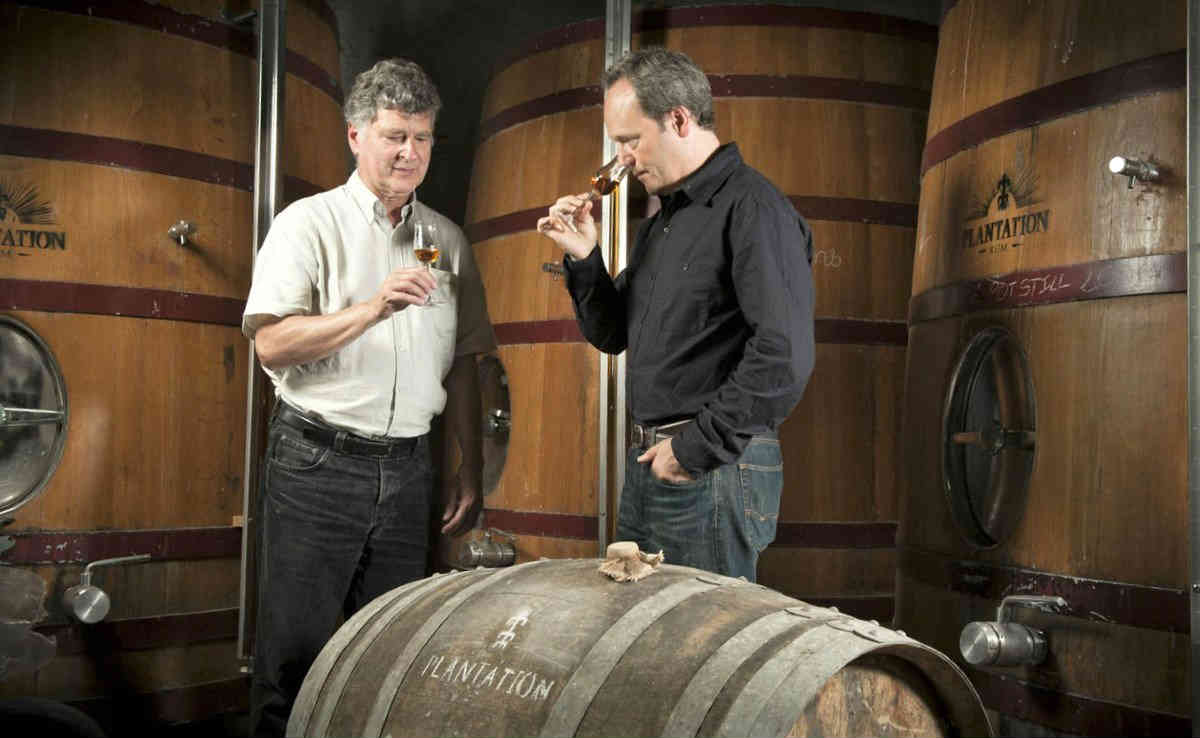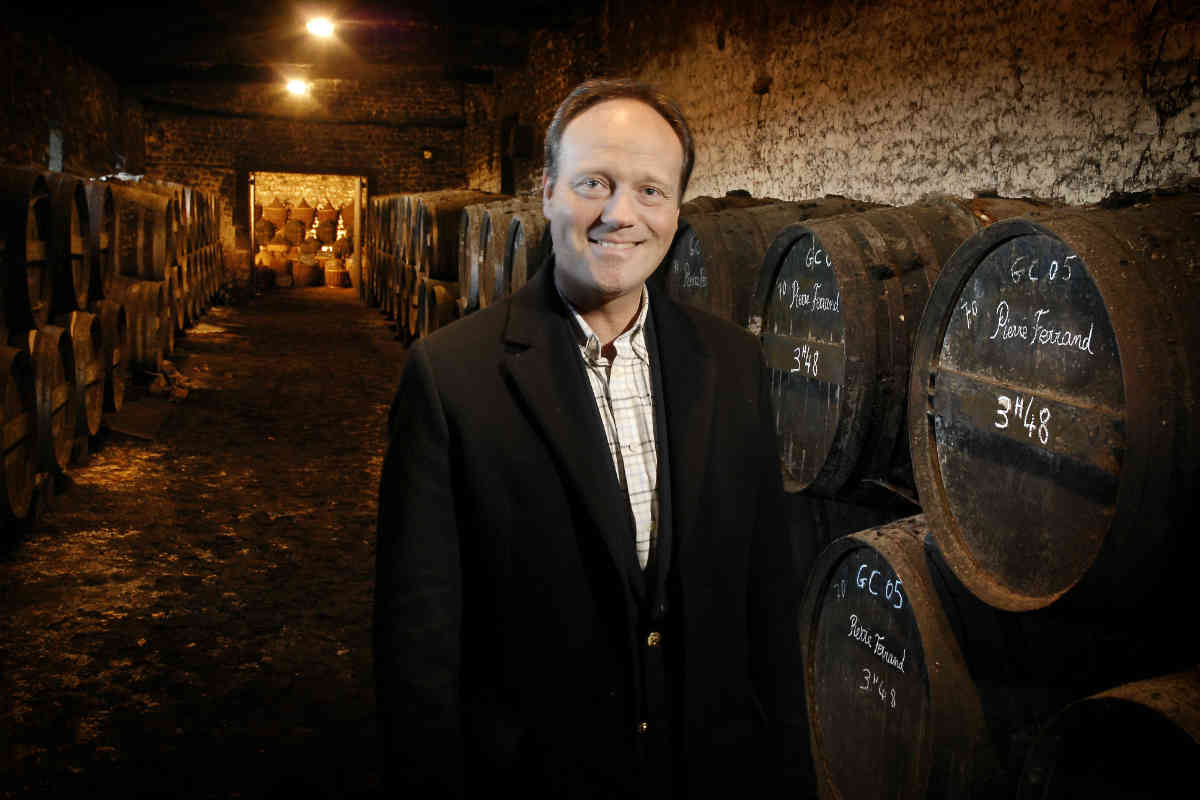Alexandre Gabriel, Proprietor & Master Blender of Maison Ferrand has been in the spirits industry for more than 30 years. Since joining the historic cognac house and later taking full ownership, he’s expanded it in a number of successful directions, including Citadelle Gin and Plantation Rum. In early 2017, he purchased the West Indies Rum Distillery in Barbados, along with a one-third share of National Rums of Jamaica. He’s very well known and connected within the rum industry and has a lot to say about its past and future. I caught up with Gabriel at the 2019 Miami Rum Congress for this interview.
Matt Pietrek: It’s been a while since Maison Ferrand has come out with something completely surprising and based on the past, like the Dry Curacao or Stiggins’ Fancy Pineapple Rum. Are there more surprises coming?
Alexandre Gabriel: Nothing I can share for the moment, but we’re always working on five to 10 different things for our own pleasure and research. It’s only once in a while that we think it’s truly worth launching a product. Only the best ones make it out, while some of the products, we make for getting better at what we do; like a musician practicing pieces they’re not necessarily going to perform.
An example is actually Stiggins’. Stiggins’ is a product that was not supposed to be launched. It was a product we did on a Dave Wondrich challenge because we thought that it would be fun to reissue a historical rum expression.
Are there more recent examples of experimentation under way at Maison Ferrand?
The other day, Dave [Wondrich] showed me some diagrams of century old pot stills like the Chinese stills found in old manuscripts as well as a medieval still. We’re actually building these to stills on a small scale, just to experiment and learn, and not to launch a product. If it makes an interesting spirit, we might do a seminar about it to share what we learned, and then we’ll move on to something else. [Ed Note: Alexandre and David Wondrich presented on this project at Tales of the Cocktail 2019.]
Compared to most rum companies, the experiments you dream up, like fermenting rum with sea water, are far more, shall we say, esoteric. Would you agree?
You can look at our work as learning and making great products by gaining more exciting knowledge. The beautiful part is that there is a lots of spirits knowledge developed over hundreds of years. Our team is always looking, researching, and eventually, it allows us to create new products.
I’ll give you another example: barrel aging. Most people think a barrel is something that looks like a cylinder and is 50 gallons. But there are geniuses who’ve created a wooden vat a little less than 2000 liters and is egg shaped. It makes a beautiful product because it allows the liquid to flow around inside, naturally. We love that stuff. It’s expensive but it’s fun, and we learn so much from it. In the end, all this research is to make great music, and our music happens to be rum.

Photo: Matt Pietrek
Do you see yourself as an innovator who’s breaking new ground or as someone uncovering and reviving techniques of the past?
I guess it has to be both. For us, it’s the research and knowledge at the service of beautiful products. I believe spirits like rum and cognac are folk art … it’s an art form. You see diverse cultures with different spirit expressions. It’s studying the past to create the future. Also, the traditions of tomorrow are today’s experiments that worked. And today’s traditions are what people created in the past.
Rum has been incredible that way. Rum has incorporated many techniques into its history over hundreds of years. Like stills that borrowed ideas from earlier stills and tweaked them. The team and I are really passionate and fascinated by all the knowledge that allows us to create products. That’s a big part of our job to research and understand it
You work with rum from all over the globe, yet most are not from countries known for French-style or agricole rums. That is, cane juice based with column distillation. The primary example being the AOC rhums of Martinique. Given your French heritage, it’s surprising that you mostly work with other styles.
You know, for us it’s not about politics. It’s not about having a passport, it’s about making great rums we believe in. The French in Martinique, Guadalupe, and Reunion Island are making beautiful rums, as you know.
For us, we have specialized in historical rums that are molasses-based because I just fell in love with them close to 25 years ago. And that’s been our specialty; that’s what I think we’re good at. The French distilleries do an incredible job at what they’re doing, while the idea for us was to specialize in what really meant something to us. It had nothing to do with my passport; it was more about a taste profile that I felt very comfortable with and where my team and I could make a difference.
Any last words on your philosophy to spirit making?
The master blender who trained me always said, “Make sure the cognac you put out is telling us something that is worth it. Something that will stay with us once the glass is empty.” This is what we’re doing with Plantation; I feel very comfortable working with these great cultures. With a great rum, in the end, it’s not about the drink, it’s about the emotion you are left with.
Disclosure: Unrelated to this interview, the author has done consulting work for Maison Ferrand to document British rum history.



